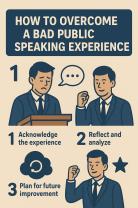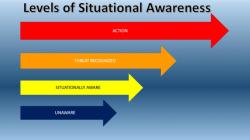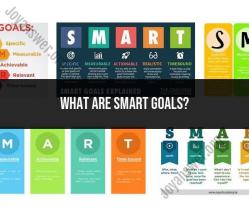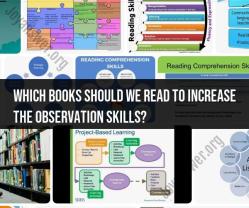What is wisdom and does one obtain or gain wisdom?
Wisdom is a complex and multifaceted concept that involves a deep understanding of life, sound judgment, and the ability to make thoughtful and compassionate decisions. While there is no single, universally accepted definition of wisdom, it is generally characterized by the following elements:
Knowledge: Wisdom often begins with a foundation of knowledge and experience. It's the ability to draw upon accumulated knowledge and life experiences to make informed decisions and solve complex problems.
Insight: Wisdom goes beyond simple knowledge; it involves a deeper insight into the underlying truths and complexities of life. Wise individuals can see the bigger picture and understand the nuances of a situation.
Sound Judgment: Wisdom is marked by the capacity to make sound, rational, and ethical decisions. It involves evaluating situations from different angles, considering consequences, and making choices that benefit not only oneself but also others.
Emotional Regulation: Wise individuals tend to have a high degree of emotional intelligence, which enables them to manage their own emotions and empathize with the emotions of others. This emotional regulation contributes to their ability to make compassionate and balanced decisions.
Compassion and Empathy: Wisdom often involves a deep sense of compassion and empathy for others. Wise individuals are understanding and considerate of the needs and feelings of others and are often motivated by the well-being of the broader community.
Open-Mindedness: Wisdom is associated with open-mindedness and a willingness to consider different perspectives and ideas. Wise individuals are often receptive to new information and are adaptable in their thinking.
As for the acquisition of wisdom, it's a lifelong process that involves learning, self-reflection, and personal growth. Wisdom is not typically something one can gain overnight but rather something that develops and deepens over time. Here are some ways in which people may obtain wisdom:
Life Experiences: Wisdom often emerges from a wide range of life experiences, including successes, failures, challenges, and personal growth. Learning from these experiences can contribute to wisdom.
Education and Learning: Continual learning and seeking knowledge can contribute to wisdom. Reading, studying, and exploring new ideas can expand one's understanding of the world.
Self-Reflection: Taking time to reflect on one's experiences, decisions, and values is a key component of acquiring wisdom. Self-reflection allows individuals to gain insight into their own actions and thought processes.
Mentorship: Learning from wise mentors or role models can be a valuable source of wisdom. Interacting with individuals who have more life experience and knowledge can be a catalyst for personal growth.
Spirituality and Philosophy: Many people turn to spiritual and philosophical traditions to explore questions of meaning and purpose, which can lead to deeper insights and wisdom.
Counseling and Therapy: Seeking professional guidance from therapists or counselors can help individuals work through challenges, gain self-awareness, and develop greater emotional intelligence.
In summary, wisdom is a multifaceted concept that involves knowledge, insight, sound judgment, empathy, and open-mindedness. While it is not something that can be gained overnight, individuals can develop and deepen their wisdom over time through learning, reflection, and life experiences.
Wisdom: A Quest for Understanding and Attainment
Wisdom is a complex and multifaceted concept that has been pondered by philosophers and theologians for centuries. It is often defined as the ability to apply knowledge and experience to make sound judgments and decisions. Wisdom is also associated with qualities such as compassion, empathy, and humility.
The pursuit of wisdom is a lifelong journey. It is not something that can be attained overnight. Rather, it is a process of continuous learning and growth.
The Pursuit of Wisdom: Is It Attained or Gained?
Whether wisdom is attained or gained is a matter of debate. Some believe that wisdom is an innate quality that we are born with. Others believe that wisdom is something that we develop over time through experience and reflection.
It is likely that wisdom is a combination of both innate qualities and acquired knowledge. Some people may be naturally more wise than others, but everyone has the potential to develop wisdom over time.
Wisdom's Nature: Exploring Its Acquisition
There is no one-size-fits-all answer to the question of how to acquire wisdom. However, there are a number of things that we can do to nurture our wisdom and help it to grow.
One important thing is to be open to new experiences and perspectives. Wisdom comes from learning about the world around us and from interacting with people from different walks of life.
Another important thing is to be reflective. We need to take the time to think about our experiences and to learn from our mistakes. Reflection can help us to develop a deeper understanding of ourselves and the world around us.
Finally, it is important to be humble. We need to be open to the possibility that we may be wrong and that we can learn from others. Humility is essential for developing wisdom.
Conclusion
Wisdom is a lifelong journey that is both challenging and rewarding. By being open to new experiences, reflective, and humble, we can nurture our wisdom and help it to grow.
Here are some additional thoughts on how to acquire wisdom:
- Read widely. Reading exposes us to new ideas and perspectives, which can help us to develop a deeper understanding of the world around us.
- Spend time with wise people. Surrounding ourselves with wise people can help us to learn from their wisdom and to develop our own.
- Be mindful of our thoughts and actions. Mindfulness can help us to become more aware of our own thoughts and actions, which can lead to wiser choices.
- Practice compassion and empathy. Compassion and empathy are essential components of wisdom. By practicing compassion and empathy, we can better understand the experiences of others and make more compassionate decisions.













